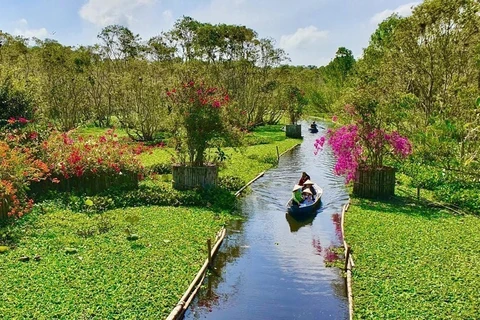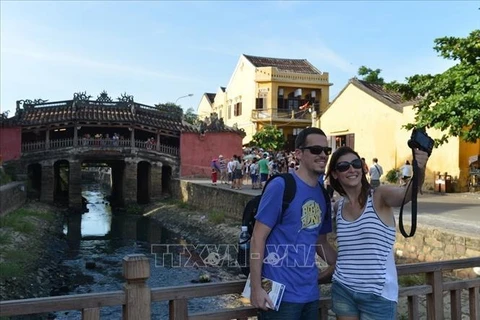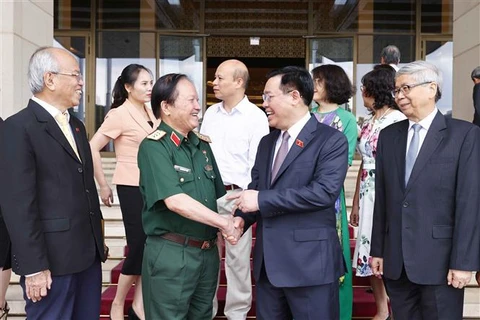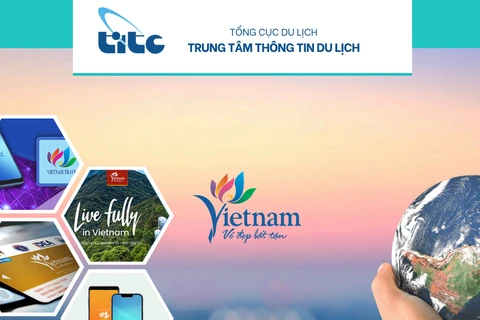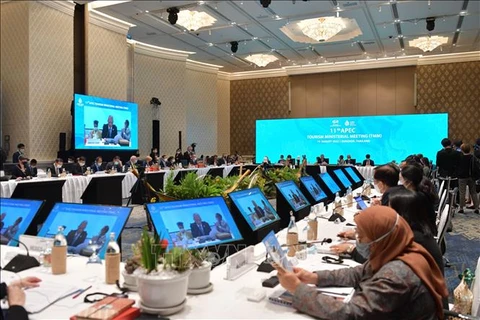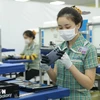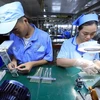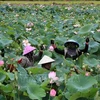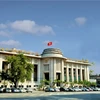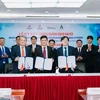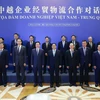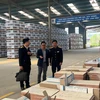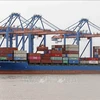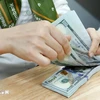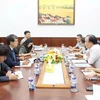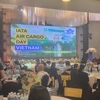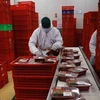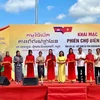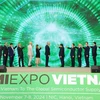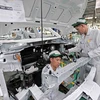 Deputy Prime Minister Vu Duc Dam speaks at the high-level tourism forum ‘Recovery and Development Solutions for Sustainable International Tourism’ held on September 8 on the sidelines of the 16th International Travel Expo HCM City. (Photo: VNA)
Deputy Prime Minister Vu Duc Dam speaks at the high-level tourism forum ‘Recovery and Development Solutions for Sustainable International Tourism’ held on September 8 on the sidelines of the 16th International Travel Expo HCM City. (Photo: VNA) Speaking at the tourism forum ‘Recovery and Development Solutions for Sustainable International Tourism’ held on September 8, Dam said that domestic and foreign tourism in Vietnam has seen a positive rebound since mid-March when the country fully opened international tourism.
The Ministry of Culture, Sports and Tourism must review policies and mechanisms to put the tourism industry on a more sustainable path after two years of stagnation due to the global pandemic, Dam said.
The ministry needs to work with businesses and associations to propose breakthrough solutions to promote tourism as one of the nation's top economic activities, he said.
Tourism businesses also need to get involved in the training of human resources, he said.
The linkage between businesses, associations, local authorities and countries in the region on the basis of mutual benefit should be strengthened.
Development of green tourism and digital transformation are essential solutions to the sustainable development of the tourism industry, he said.
Zoritsa Urosevic, the World Tourism Organisation Executive Director, said, "Vietnam is taking clear steps to accelerate the recovery of tourism.
“Through the Vietnam tourism development strategy, the Government is committed to using new technology in tourism. It will also introduce new policies and mechanisms for finance, credit, and tax to support the recovery and development of our sector between now and 2030.
“The restart of domestic tourism across Vietnam also brings hope for many people. Tourism can create jobs, support businesses and drive the economy forward. Looking further ahead, we have a chance to work together to shape a better tourism sector that leaves no one behind,” she said.
Thong Khon, Minister of Tourism of Cambodia, said, "The ASEAN Tourism Ministers, ASEAN Partners and the leaders of the World Tourism Organisation and the ASEAN Tourism Association should continue to strengthen human capital development, strive to implement existing cooperation frameworks and increase exchanges, promote digital literacy programs, and take advantage of digital connectivity innovations and industrial revolutions 4.0 for the development of smart, sustainable and environmentally friendly ASEAN tourism."
Nguyen Manh Quyen, Deputy Chairman of the Hanoi People’s Committee, said the reopening of tourism activities and welcoming international tourists under new normal conditions from mid-March created a driving force for the recovery and development of the tourism industry.
The lifting of restrictions on tourism activities, the implementation of policies to support travel businesses and destinations have promptly and effectively met tourism demands, especially domestic tourism during peak holidays.
However, international tourism activities in the capital city still face many bottlenecks, as well as limitations that need to be removed and overcome.
The number of international tourists in the first seven months of the year remained low, accounting for only 11.4 %of the same period in 2019, and the tourism revenue from international tourism activities has not been high.
The structure of international tourists still focuses on a few tourist markets such as the Republic of Korea, Japan, and Southeast Asian countries, while the number of tourists from key markets with high spending capacity such as the EU, US and Australia are still low.
Immigration policies differ among countries in the world and the political and social situation in some areas has led to a decrease in international visitors, he said.
Currently, there are still some difficulties and bottlenecks in policies related to electronic visa issuance (e-visa) and travel insurance for international tourists.
After a long time of the epidemic, many travel businesses are still not ready to promote the attraction of international tourists due to declining financial resources, and many accommodation establishments and destinations are still in the process of maintaining and upgrading facilities to serve tourists.
The campaigns and programmes of tourism promotion have not been organised and implemented professionally in key international tourist markets.
In order for international tourism to be truly sustainable, practical and effective, Hanoi will focus on building and developing tourism products to meet the needs of international tourists.
He proposed the Government consider increasing the visa exemption period to Vietnam from 15 days to 30 days, and firmly direct the improvement of the electronic visa process to facilitate international visitors’ registration and approval./.
VNA
